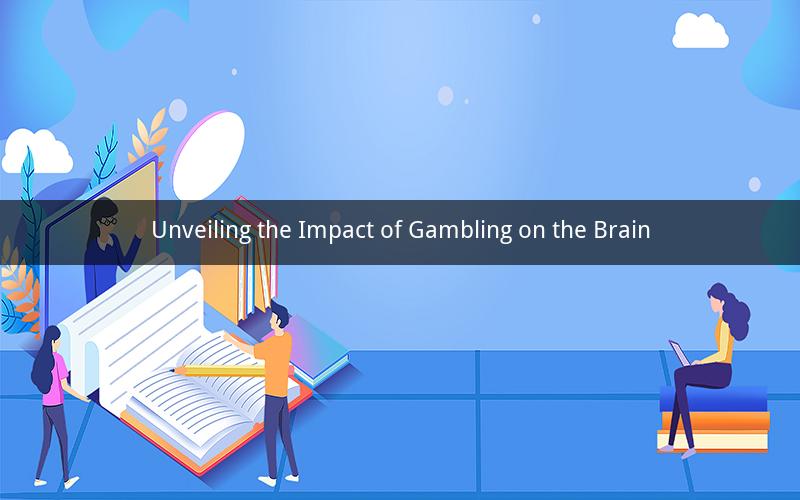
Gambling, an activity that has been around for centuries, continues to captivate individuals across the globe. While many engage in gambling for entertainment purposes, others find themselves drawn to the thrill and potential for financial gain. However, the allure of gambling goes beyond the surface, as it can have profound effects on the brain. This article delves into how gambling affects the brain, exploring the psychological and neurological implications of this addictive behavior.
1. The Dopamine Connection
One of the primary ways gambling affects the brain is through the release of dopamine, a neurotransmitter associated with pleasure and reward. When a person wins, the brain releases dopamine, creating a sense of euphoria and reinforcing the behavior. Over time, this can lead to a heightened desire to gamble, as the brain craves the same dopamine rush. However, when a person loses, the brain's reward system is not activated, leading to feelings of frustration and disappointment.
2. The Brain's Reward System
The brain's reward system plays a crucial role in gambling addiction. This system is responsible for reinforcing behaviors that are beneficial for survival, such as eating and socializing. When a person engages in gambling, the brain perceives it as a beneficial behavior, as it triggers the release of dopamine. Consequently, the brain begins to associate gambling with pleasure, making it more likely for individuals to continue engaging in this activity.
3. The Role of the Prefrontal Cortex
The prefrontal cortex, located at the front of the brain, is responsible for decision-making, impulse control, and judgment. When a person is engaged in gambling, the prefrontal cortex becomes less active, making it easier for individuals to make impulsive decisions. This can lead to a higher risk of problem gambling, as individuals may continue to gamble despite negative consequences.
4. The Impact of Problem Gambling on the Brain
Problem gambling can have long-term effects on the brain, leading to changes in brain structure and function. Research has shown that individuals with gambling disorders often exhibit reduced gray matter in the brain regions associated with decision-making and emotional regulation. Additionally, problem gamblers may experience increased activity in the brain's reward system, making it even more difficult to resist the urge to gamble.
5. Cognitive and Emotional Consequences
Gambling can also have significant cognitive and emotional consequences. Individuals with gambling disorders may experience difficulties with attention, memory, and problem-solving. Additionally, they may experience heightened levels of stress, anxiety, and depression. These emotional and cognitive effects can further exacerbate the problem, making it even more challenging for individuals to overcome their gambling addiction.
5 Questions and Answers
1. How does gambling affect the brain's reward system?
Gambling affects the brain's reward system by triggering the release of dopamine, a neurotransmitter associated with pleasure and reward. This release reinforces the behavior, making individuals more likely to continue gambling.
2. Can problem gambling lead to changes in brain structure?
Yes, problem gambling can lead to changes in brain structure. Research has shown that individuals with gambling disorders often exhibit reduced gray matter in brain regions associated with decision-making and emotional regulation.
3. How does the prefrontal cortex influence gambling behavior?
The prefrontal cortex plays a crucial role in decision-making, impulse control, and judgment. When the prefrontal cortex is less active, individuals are more likely to make impulsive decisions, such as continuing to gamble despite negative consequences.
4. What are the cognitive consequences of problem gambling?
The cognitive consequences of problem gambling include difficulties with attention, memory, and problem-solving. These challenges can further exacerbate the problem, making it more challenging for individuals to overcome their gambling addiction.
5. Can emotional disorders be associated with problem gambling?
Yes, emotional disorders such as stress, anxiety, and depression can be associated with problem gambling. These emotional challenges can further exacerbate the problem, making it more difficult for individuals to overcome their gambling addiction.
In conclusion, gambling has a profound impact on the brain, influencing its reward system, structure, and function. Understanding these effects is crucial in addressing the issue of problem gambling and helping individuals overcome their addiction. By recognizing the cognitive and emotional consequences of gambling, we can work towards creating a healthier and more informed society.